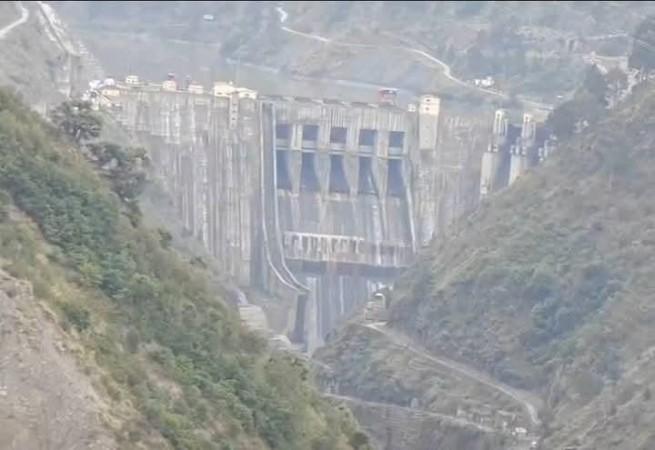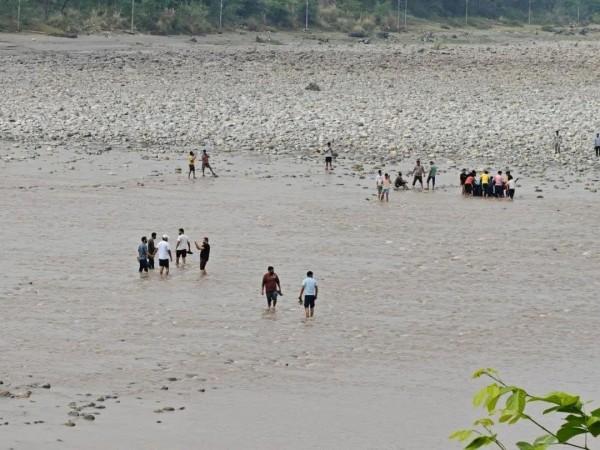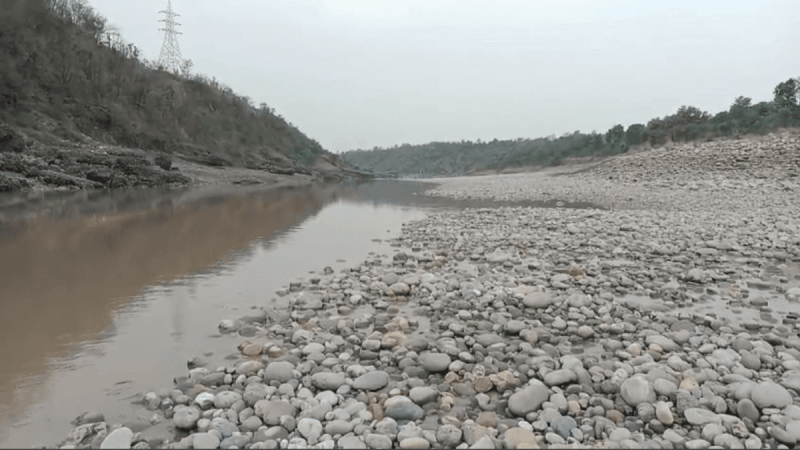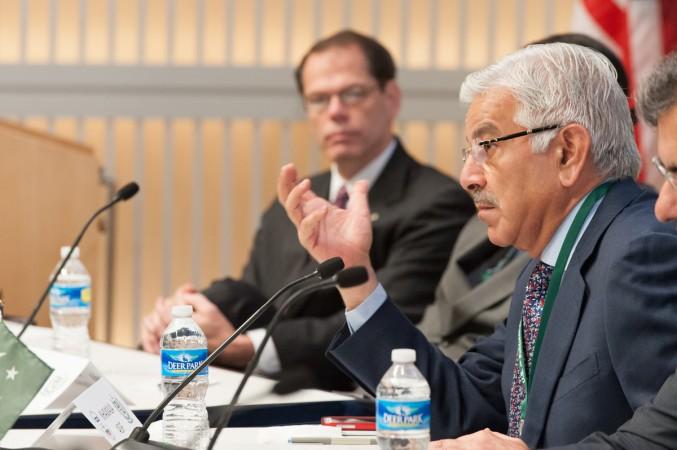
Notwithstanding threats from the Pakistan government, Indian authorities have halted the flow of water through the Baglihar and Salal dams on the Chenab River in the Ramban and Reasi districts of Jammu and Kashmir.
The decision was taken to implement the Union Government's move to suspend the Indus Waters Treaty. Following this, the flow of water from these two key dams has been cut off.
A day after halting the flow of water through the Baglihar Dam in Ramban district, the authorities on Monday also stopped the release of water through the Salal Dam in Reasi district.
As a result, the mighty Chenab River has run dry beyond the Akhnoor subdivision of Jammu district.
Following the terrorist attack in Pahalgam, India has taken a series of measures against Pakistan. The first step was the suspension of the Indus Waters Treaty, which halted the flow of Indus River water to Pakistan. Now, India has also stopped the flow of Chenab River water.

The Baglihar and Salal Dams, both built on the Chenab River, have now been closed. After the gates of these dams were shut, the river flowing from them has virtually dried up.
The Salal Dam, located in Reasi district, has had all its gates closed, leading to a sharp drop in the Chenab's water level in several areas. The river has dried up at multiple points.
Flow Stopped at Baglihar Dam on Sunday
On Sunday, authorities stopped the release of water from the Baglihar Dam in Ramban district. The dam has long been a point of contention between India and Pakistan, with Pakistan previously seeking arbitration from the World Bank over its construction.

Reports indicate that all gates of the Baglihar reservoir were shut on Sunday, leaving the Chenab River bed at Ramban and downstream completely dry.
India Suspends Indus Waters Treaty After Pahalgam Terror Attack
The gruesome terrorist attack in Pahalgam, which claimed 26 lives—25 of them tourists—has brought India-Pakistan relations to a new low.
India has accused Pakistan of sponsoring cross-border terrorism. In response, the Cabinet Committee on Security (CCS) implemented a range of measures, including the suspension of the Indus Waters Treaty.
![[Representational Image] According to the Indus Water Treaty, India has full rights on the eastern rivers — Sutlej, Beas and Ravi — and must allow unrestricted flow of water of the western rivers — Indus, Chenab and Jhelum — to Pakistan. . Indus river](https://data1.ibtimes.co.in/en/full/629827/indus-river.jpg?h=450&l=50&t=40)
The Indus Waters Treaty, signed in 1960 by then Indian Prime Minister Jawaharlal Nehru and Pakistani President Mohammad Ayub Khan, was brokered by the World Bank. Under the treaty, the Eastern rivers (Ravi, Beas, and Sutlej) were allocated for India's unrestricted use, while the Western rivers (Indus, Jhelum, and Chenab) were allotted to Pakistan, with India permitted limited non-consumptive use for purposes such as navigation, flood control, and fishing.

Pakistan Threatens Retaliation
On Saturday, Pakistan issued a stark warning, threatening military action if India attempts to block or divert water.
Pakistan's Defence Minister Khawaja Asif declared that his country would not hesitate to attack India if any structures were built to obstruct water flow to Pakistan.
"Absolutely, there is no doubt—we will not waste even a minute to attack India if any structure is built to stop water from flowing to Pakistan," Asif said in an interview with a domestic news channel. He added that any attempt to divert Pakistan's share of water would be seen as an act of aggression.








